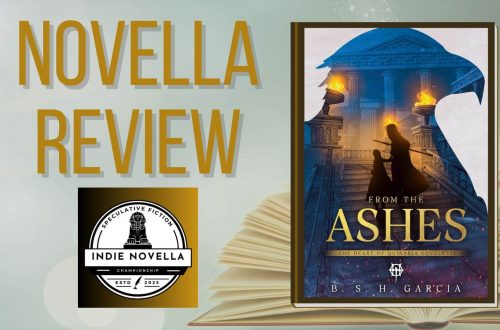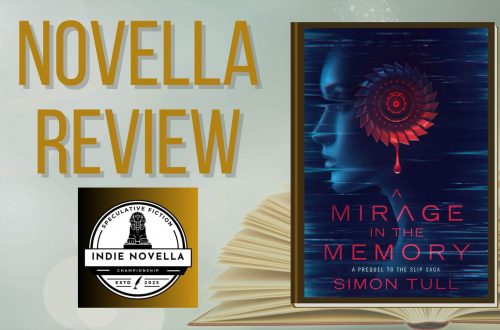Anyone can be a writer. Anyone can publish a book. I’m not saying it’s easy, because as hobbies go, you’d suffer less heartache by stamp collecting, but as either a hobby or a budding career, anyone can do it, at any age. You don’t need to retire and live off that life experience to tell a good tale, nor do you need to be fresh out of college and ready to sweat your life away over words. And that’s the beauty of writing. The only thing you need to become a writer is the means to write; a pen and some paper, or a word processor on your computer. That’s it.
To master the craft of writing, don’t you need to attend creative writing classes or have a master’s degree? Or a wise mentor and muse to guide your path? Nope. You only need to do two things:
- Read a lot.
- Write a lot.
That’s it!
There seems to be this misconception that you can only achieve writing success if you’re rich with a degree, and I can see why. Writing and the arts are dominated by the privileged and wealthy. There are many writing courses, writing groups, writing retreats, writing spa days, writing tea parties, and writing conventions which charge an absolute fortune that working class writers couldn’t even dream of attending. It almost feels like there is an upper class of literary writers that have their own secret society where the rich famous authors get chummy with each other, and the rest of us stare from the outside like a character in a Dicken’s novel. We all share the same dream of being published and quitting our day job so we can join the high fliers and say we’ve made it. Sadly, the realistic path of the modern writer is that many published authors cannot afford to quit their day job, whether they’re traditionally published or not.
The path to publishing can be daunting. It can be hard to find the resources needed to query traditional publishing, and self-publishing also has many financial barriers, such as editing and cover art costs, that are simply unaffordable for many.
I come from a working-class background where I work full time and use my spare time to write. I have attended two writing courses during my entire writing career; a council-funded class at a local school, and a mentorship scheme which cost me a whooping £70 – quite a lot of money when I was unemployed at the time! Both of these courses taught me a few things that I’d like to share with you in a separate blog post. There are some financial barriers to writing, but there doesn’t have to be.
Most of what I learned was by reading a lot, writing a lot, and by posting my writing on free online communities for critique. I’d say these free communities of like-minded writers were the most valuable. Here are some free online resources that I took advantage of to develop my writing which you may find helpful, and some tips when it comes to publishing.
Free Tools for Writing
Luckily, you don’t need many tools to write; there are plenty of free word processors out there. You don’t need to spend money on software like Scrivener, nor do you need a fancy laptop. Here are some of my favourite free resources:
- Open Office: A free word processor like Microsoft Word. Tip: Free word processors can save files as .doc/docx files used by Microsoft office!
- Libre Office: Another free word processor.
- Google Docs with Google Drive: A free online word processor which saves your work automatically and syncs across devices. Useful for making backups of your work.
- OneNote: Microsoft’s free note-taking software which is separate from their paid Office software. OneNote can also be used on your mobile devices and syncs up.
- Evernote: Another free note-taking software you can use on PC or your phone. There is a subscription service, but the free version should have all you need.
- Dictionary.com/Theasaurus.com: For looking up those tricky words or finding synonyms.
- Hemingway App: A free online editor which can check your work for overuse of passive voice and adverbs, but don’t use it as gospel!
- Grammarly: An online editor to help you correct spelling and grammar errors. There is a limited free version which works well.
- Pro Writing Aid: Another online editor to help analyse your writing and spot errors. These free editors can be useful, but they can also miss things, so use with care.
- Canva: A free online website for making fancy images and collages which can be used to make Facebook/Twitter banners, or aesthetics, and even book covers.
- Unsplash: A free collection of stock photos you can use royalty-free. Good for your fancy aesthetics!
- A Soft Murmur: Ambient background sounds, such as rain, to help you concentrate when writing.
- A Collection of Grammar Resources: If you’re worried about your grammar skills, then you can learn a lot from these resources.
- And more writing tools in my Writing Tools blog!
I’ll say it again. The best way to get good at writing is to read a lot and write a lot. Read in your genre and read modern releases if you can as this will keep you up-to-date with current trends and expectations. If you can’t afford to splurge on new books, then get yourself down to the best free resource of all; your library! They may be able to order in new releases for you. Writing a lot is the only real way to get better at writing as practice makes perfect. Seriously, you will learn so much about the process of writing a novel by writing a draft from start to finish.
There are also many online writing communities you can join to find critique partners, beta readers, or just like-minded writers to bounce ideas off. You can find a thorough list of the different types of online communities on my Writing Communities blog. The best part is, all of these are free!
And my biggest tip – back up your work! If you can afford it, buy a small USB Stick. If not, you can upload your documents to One Drive or Google Drive for free, and you can email a copy of your work to yourself. Technology breaks all the time. Don’t lose your manuscript!
Tips on Publishing
Okay, you’ve written a story and now you want to DO something with it. If you’re just looking for readers and don’t want to sell your work, then there are plenty of free websites where you can post your work online: Wattpad, FictionPress, and Medium to name a few. If you want to be published, there are three main paths:
Traditional Publishing
There is where you need to find an agent to represent you and your book by querying them. The agent then sells your book to a publisher, who will physically publish your book in brick and mortar stores. This is the ‘traditional’ path to publishing success, but it can be a slow and painful process. Finding an agent and landing a publishing deal can feel like winning the lottery – it’s hard work and not everyone is going to succeed on their first attempt. Choosing the traditional path means you may not have control over cover art decisions or marketing, and you’ll need to earn out any advance you get before you start earning royalties. You may also need to sign a contract where you could lose certain rights and may be asked to make changes to your book you wont agree with – however you won’t need to pay for any editing, art, or marketing services yourself. And you should never sign a contract you don’t agree with!
Want to find an agent and become published? Here are a few tips and resources:
- Learn how to write a query and synopsis. There are many good resources out there, like this one.
- Keep your query concise! Don’t send a ten-page synopsis if they ask for half a page.
- Get advice on how to query on Query Shark.
- Use QueryTracker to find agents you want to query and track the ones you have emailed. You don’t need to pay to use it.
- Look at Manuscript Wishlist to search for what agents are looking for.
- Take part in pitch events, such as #PitMad on Twitter. Don’t pay anyone to pitch your book.
- When you find an agent to query, check the instructions on their website CAREFULLY. Only send them what they ask for and be polite.
- Follow agents on Twitter so you can learn more about them, the stories they are looking for, and when they may be open/closed to queries.
- Get feedback from online communities and beta readers so that your query and sample pages are polished and contain no typos or basic errors.
- Don’t pay anyone to query for you. You don’t need to pay someone to edit your writing just to query. If you land a publishing deal, then THEY pay for editing.
- Seriously, if someone asks you for money during any stage of querying in order to guarantee you success, it’s a scam. There are no guarantees when it comes to querying.
- When you receive a rejection – which you will – don’t respond. Just mark it as done and move on to the next agent. Those first few times are going to sting, but it isn’t an indication to give up.
- Some agents may not get back to you at all, in which case refer to what their guidance says on their website. It may be acceptable to give them a nudge after three months, for example. Sometimes no answer is the answer.
- If an agent requests a partial sample or your full manuscript, then great! Follow their instructions and keep it cool.
- And if you’re lucky enough to get an offer, be prepared to ask questions! Do your research! Don’t feel obligated to sign anything you’re not comfortable with.
- Consider applying for mentorship schemes such as Author Mentor Match or Pitch Wars. These events are free, but there are many mentorship schemes which are not. Avoid these!
Self Publishing
This is where you’re 100% responsible for your book, from the editing, to the cover art, to the hell that is marketing. But it also means you are 100% in control of your own book and keep whatever royalties you make. You get to decide what the cover will look like, but it also means you’ll be paying for cover art and editing out of your own pocket. Self-publishing doesn’t mean you can’t have physical copies of your book printed, as many self-publishing services now have that option. However, self-publishing does have a steep learning curve.
You can self-publish your book for free using platforms such as Amazon. You can also edit, design the cover, and market your book all by yourself. However, unless you consider yourself to be an accomplished editor, artist, or marketer, it may be worth paying someone else to do these, which is where self-publishing can become expensive. You don’t need to spend massive amounts of money on marketing, but the two things you definitely want to get right is the book cover and the formatting. Readers will be put off from buying your book if the cover looks terrible, and the opening chapter is riddled with typos.
If self-publishing appeals to you, then here are some tips and resources which may help:
- Learn more about the process of self-publishing.
- If you want to hire an editor, make sure you do your research and hire someone that works for you. Ask them to provide a sample edit so you can see if you like their editing style.
- If you have critique partners and beta readers, you may be able to do a book-swap where you can edit each other’s work for free, or at least point out plot holes and stylistic problems.
- Sign up with Amazon’s Kindle Direct Publishing services.
- There are other ways to publish your book online, such as IngramSpark.
- You can also sell your books on your own website. You can find cheap hosting using WordPress.
- You can create your own free website or blog on WordPress or Wix, but if you can, buy a cheap domain name of your author name as it looks more professional.
- Make sure you have an author presence online and keep it consistent by using the same name on social media – use Facebook, Twitter, or Instagram!
- You don’t need to spend thousands on book cover art. There are websites where you can buy cheap pre-made book covers, such as The Book Cover Designer – do your research!
- You can also use Canva to make your own book cover. Select the Book Cover template option.
- Properly format your book for publishing. You don’t need to pay someone to do this – there are resources online that can teach you.
- Don’t spend massive amounts of money on advertising or Facebook ads. The best type of advertising is word of mouth! Get our there and make connections.
- But don’t spam your book. People don’t like authors who do nothing but promote their own book. Get involved in communities first and foremost and network.
- Use book promotional services such as BookBub.
- Get your book on Goodreads and encourage reviews. Reviews mean more sales! However, don’t respond to reviews, and certainly not negative reviews!
- If you can, see if you can sell copies of your book to independent book stores, or attend conferences and markets where you can pitch/sell your book.
- Remember that selling books counts as a self-employable income when it comes to doing your taxes!
Small Presses
Independent/small presses are a growing trend in publishing and act as a go-between the traditional model and self-publishing. Like a traditional publisher, a good small press will pay for the editing, book cover, and marketing of your book out of their own pocket so you don’t have to. However, these independent presses are called small for a reason – they don’t have the clout of the traditional publishing houses and wouldn’t be able to provide you with an advance, or the fame and glory associated with traditional publishing. In most cases, you don’t need an agent to query a small press, and they can afford to take more chances on new authors and unique ideas in a way that traditional publishers might shy from.
As with anything, do your research when it comes to finding a small press. If you find one that resonates with you, then be prepared to ask questions, and never feel pressured into signing a contract that you’re not comfortable with. You may find that signing up with a small press offers you the freedom of self-publishing without all the difficulty that goes with it. I can say from experience that working with a small press feels like a true partnership and doesn’t involve as much waiting around!
And I can’t talk about small presses without mentioning my own publisher! If you’re a fantasy or sci-fi writer looking for a small press that offers a rare $1000 advance, then check out Uproar Books.
Vanity Presses: A Word of Caution
There is another path to publishing; the vanity press. These are independent publishers that offer to publish your book in exchange for an upfront fee, often thousands. DO NOT DO THIS. Vanity publishers will lure you in with fake promises and genuine excitement for your book, but once you hand over your money, you may not see any return on your investment. Agents, traditional publishing houses, and legit small presses will NEVER ask you to pay a fee upfront. They will never ask you to pay toward publishing fees, editing, book cover art, or marketing. THEY provide these services to you. They pay YOU for your book! Agents and publishers will take a cut out of any profits earned on your book through an advance and/or royalties which will be agreed on through your contract, but you will never have to pay them to publish your book.
Remember; if a deal sounds too good to be true then it’s a scam.
Photo by Artem Bali on Unsplash




